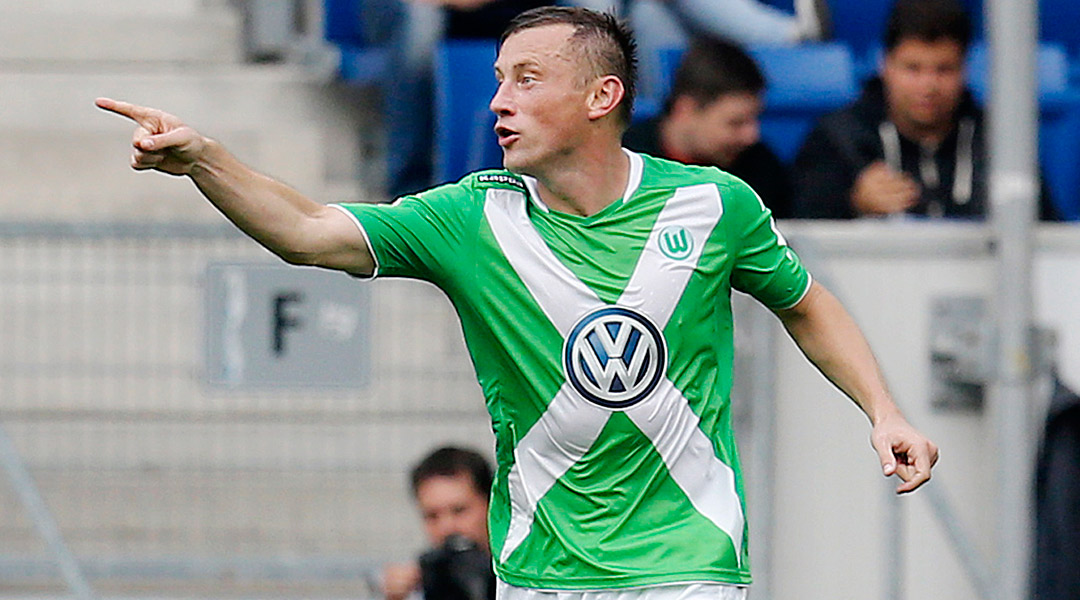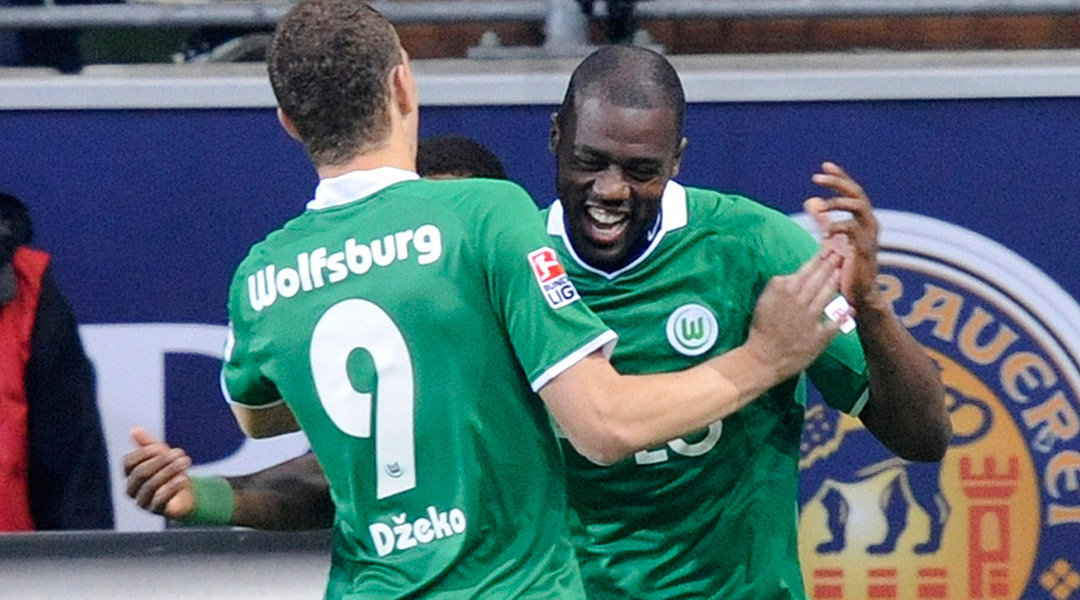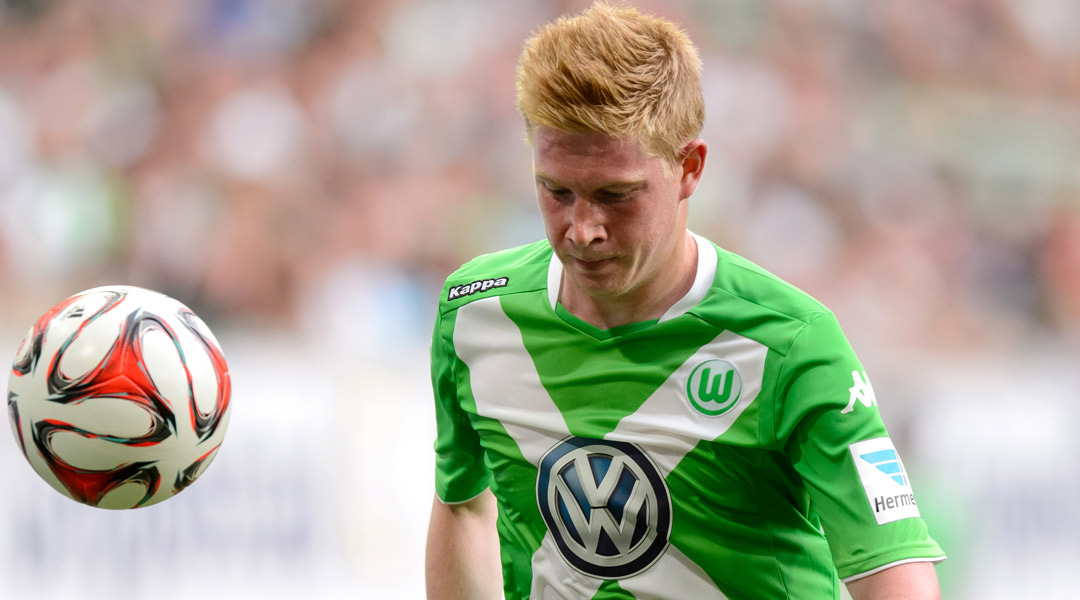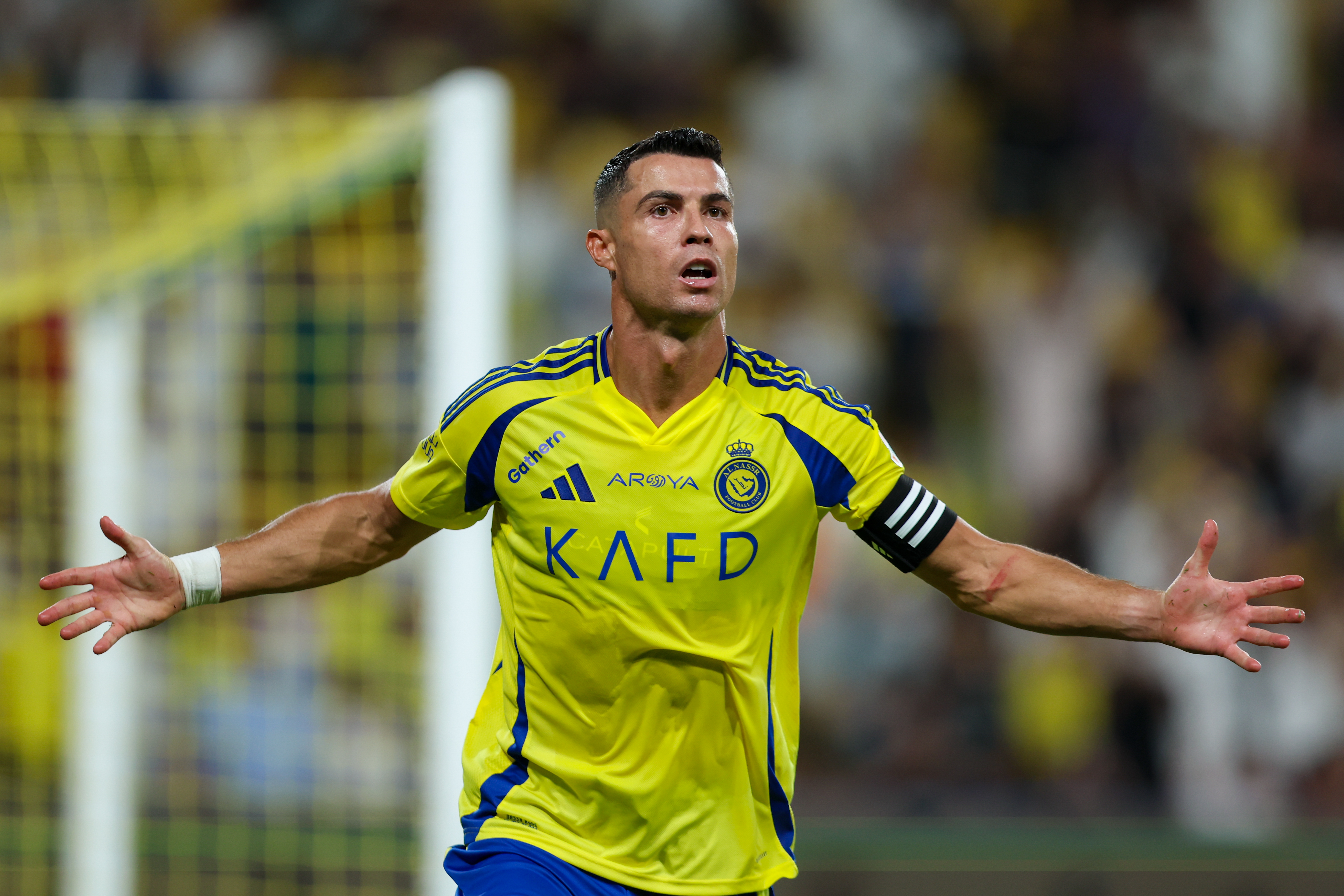Introducing Everton's 'plastic' Europa League foes who idolise Felix Magath
Alima Hotakie provides the lowdown on goal-hungry Wolfsburg, who face Everton on Thursday night...

Who are they?
Wolfsburg's history is intertwined with that of car makers Volkswagen. It's the birthplace of the VW beetle. In fact, the city used to be called 'Stadt des Kdf Wagens', which translates to 'City of the Kdf Cars'. Wolfsburg was basically founded for the employees that worked at the factories. The birth of the car company and the city are only a year apart; Volkswagen was founded in 1937, and Wolfsburg in 1938. By German standards, it's a fairly young city.
The club, however, is viewed in Germany as a 'plastic' one because of its ownership (Volkswagen are the club’s majority shareholders, granted special dispensation thanks to their long-running association).
The 1990s were a major turning point for Die Wölfe. In 1992 the club made the jump to the 2. Bundesliga. Yet more celebrations were to come; three years later the Wolves reached the DFB-Pokal final, where they lost 3-0 to Borussia Mönchengladbach. It was an era of growth, and in 1997 the club finally joined the Bundesliga.
The best features, fun and footballing quizzes, straight to your inbox every week.
If the 90s were an era of promotion, the 2000s were to become the most successful period for the club. Most of the time they managed to place in the top 10, but between 2006 and their first title in 2009, the club dropped into a period of uncertainty and only just escaped relegation.
That all changed when Felix Magath (y'know, him of failing Fulham) took over in 2007. In his first year he led the club to a fifth-place finish, their best ever at the time. Magath was the perfect fit. In his second year in charge he led Wolfsburg to its first Bundesliga title and Champions League qualification, not least thanks to the sensational partnership of Grafite (28 goals) and Edin Dzeko (26).
But what followed after Magath’s departure was a period of instability and turmoil. Facing relegation, the club brought back the man that took them to glory, but all Felix could do was steer the boat to safety. With Dieter Hecking (2012), the club has found a period of peace and success again. Under his guidance the team finished fifth last season and returned to the Europa League.

Strengths
Wolfsburg are vicious in attack. They press and counter comfortably, and there’s rarely a shortage of goals. Ivica Olic is the team's main striker at the age of 35, yet the Croatian still has a wily knack for finding the net (as he did in the last minute on Saturday, below). The former Bayern Munich player was the team's top scorer with 14 goals last season. Meanwhile, although Nicklas Bendtner was a somewhat surprising purchase, boss Hecking hopes to revive the Dane's career.
The creative force of the team is Kevin De Bruyne, who began the campaign off the back of a successful World Cup. He troubles the opposition defence with his exceptional work-rate, and regularly drifts to the right and left of the field from his central position. Left-back Ricardo Rodriguez is also a fine player who moves quickly down the flank to get involved in attack. His involvement isn’t just limited to pushing forward, but he does deliver strong crosses and a mean free-kick.
The signings of Aaron Hunt, Sebastian Jung, Josuha Guilavogui and Bendtner should provide Hecking with the depth he needs to compete in the Europa League. Other key players include goalkeeper Diego Benaglio, Brazil international Luiz Gustavo and goal-getting centre-back Naldo.
Skip to 00:50 for Olic's fine finish (to jazz, weirdly)
Weaknesses
Wolfsburg's weak spot is in defence. As strong as they are up front, they also conceded a hefty 50 goals last season. The team lacks discipline in that regard and are easily troubled when the opposition mounts pressure or counter-attacks. Their worst defeats came in two straight losses when the team was outscored 12-3 by Hoffenheim and Bayern. Their ball recovery also needs work, while careless giveaways are also a worry.
It’s fair to say Wolfsburg haven't hit their groove in the Bundesliga yet. In their first three games, the outcomes show a team still trying to find cohesion, form and shape. Junior Malanda’s costly misses (one below) sum it up. The team also has a few ongoing injuries: Ivan Perisic, Bas Dost, Patrick Ochs and Christian Traesch are still not fit to return.
Furthermore, Wolfsburg don’t hold a stellar away record. Last season they only registered seven away wins, and conceded far too easily on the road. Of concern is Hecking's limited coaching experience in the Europa League, and with a big game against Bayer on Saturday it will be interesting to see how they cope with three competitions at the same time. But if they can find their form and come out of the group stages, the Wolves could go further in this competition than their current shape suggests.
Key player
Switzerland international Rodriguez adds another dimension to Wolfsburg’s attacking game, and offers dangerous runs down the left flank (much like opposite number Leighton Baines). He’s not afraid to shoot, and his set-pieces and assists make this left-back a very valuable player.
SEE ALSO Everything you need to know about... Ricardo Rodriguez
The gameplan
Hecking is comfortable with a 4-2-3-1, and expect Wolfsburg to come out pressing. This team is not afraid to attack, and know it's their main strength, while the Germans can't let Everton control the game because they are more vulnerable without the ball. While Die Wölfe pressure early, the intensity fades over the course of the 90 minutes. Maintaining a pressing game throughout could prove the difference between success and failure.
For Wolfsburg the key lies in balancing attack and defence; keeping Romelu Lukaku contained should be their defenders’ main priority.
That said, the team should breathe a sigh of relief knowing Everton have their own troubles at the back. Carving them open will be largely left to De Bruyne and Olic.

What are they famous for?
- Wolfsburg’s adoption of their green and white colours was purely accidental. One of the club’s youth coaches had several green jerseys, but the team still didn’t have a complete outfit so the public donated bed sheets. The two combined to create the official colours of the club.
- When Steve McLaren took charge of Wolfsburg in 2010 he became the first English coach to lead a Bundesliga team.
- Bizzare, but true: in 2003, the mayor Rolf Schnellecke temporarily renamed the city 'Golfsburg' between August 25 and October 10 to support the unveiling of a new model of car. Even the signs in the city had the letter 'W' replaced with a 'G'.
- The city of Wolfsburg is named after a castle from the 1300s.
- While still in the 2. Bundesliga, the club reached the German Cup final in 1995.
- Dzeko is the club's all-time top goalscorer. He netted 66 goals between 2007 and 2010.
Club legends
- Magath is Wolfsburg’s most decorated and successful coach after bringing home the Bundesliga title.
- Siegfried ‘Siggi’ Reich's prolific goalscoring helped Wolfsburg make the jump to the 2. Bundesliga, but he retired the year before the club was promoted to the top league.
- After five years in the 2. Bundesliga, it was Willi Reimann that led the club to the top league in 1997. He stepped down after the team was nearly relegated a year later.
- Uwe Erkenbrecher was more than just a coach. He was a motivator and wasn’t afraid to give young players a chance. Thanks to him, Wolfsburg jumped from the third league to the 2. Bundesliga in 1992.
- Peter Pander (stop sniggering at the back) and Manfred Aschenbrenner are both seen as having laid the foundation for Wolfsburg to grow. They brought in fresh ideas and helped establish the club as a regular club in the Bundesliga.
- Strike duo Dzeko and Grafite’s goals (lots and lots of them) helped secure the Bundesliga title under Magath in 2009.
 Join The Club
Join The Club





